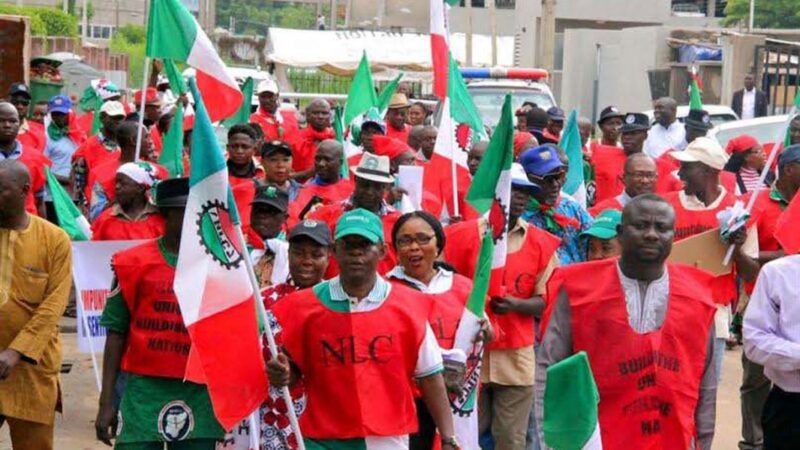Breaking News
Fuel subsidy removal: 17 CSOs urge FG to begin process of raising minimum wage now
Faith Nwadishi of the Centre for Transparency Advocacy, CTA, proposed some solutions, including repairing refineries to ensure fuel pump prices were not affected by fluctuations in foreign exchange rates and subsidizing the conversion of vehicles from petrol to Compressed Natural Gas, CNG, to mitigate the impact of subsidy removal.

In light of the economic hardship currently afflicting the nation, a coalition of 17 civil society organizations, CSOs, has urged the Federal Government to promptly initiate the process of raising the national minimum wage.
It also urged President Bola Ahmed Tinubu to adopt a comprehensive approach to addressing challenges, rather than the piecemeal approach.
The call came in response to the government’s removal of fuel subsidy, which has had a significant economic and social impact on citizens, leading to an increase in the prices of goods and services.
The CSOs, in a communique issued during a press briefing in Abuja on Wednesday, expressed deep concern over the lack of sufficient measures to alleviate the effects of the subsidy removal.
The communique was released following a two-day meeting on the removal of petrol subsidies and the proposed government palliatives.
This meeting was convened by Dr. Otive Igbuzor, the former Chief of Staff to the ex-Deputy Senate President, Ovie Omo-Agege.
The CSOs pointed out that the current national minimum wage of N30,000 was highly unsustainable, considering the current economic realities.
While noting that the subsidy removal had led to an increase in the prices of foodstuffs, transportation costs, and other services, Monday Osasah of African Centre for Leadership, Strategy, and Development (Centre LSD) said: “It is critical that a process for increasing the minimum wage begins immediately at the federal, state, and local levels, as well as by private sector employers. The current minimum wage no longer reflects the new realities.”
The CSOs also highlighted the importance of a comprehensive development agenda.
“A piecemeal approach to dealing with the challenges faced by previous administrations will not help in the long run,” the communique read.
Faith Nwadishi of the Centre for Transparency Advocacy, CTA, proposed some solutions, including repairing refineries to ensure fuel pump prices were not affected by fluctuations in foreign exchange rates and subsidizing the conversion of vehicles from petrol to Compressed Natural Gas, CNG, to mitigate the impact of subsidy removal.
David Anyaele, of the Centre for Citizens with Disabilities, CCD, underlined the correlation between poverty and disability.
He suggested a shift in focus from discussing minimum wage to establishing a living wage.
“By prioritizing the eradication of poverty, we can create a more inclusive and equitable society where everyone has the chance to thrive and reach their full potential,” he said.
The CSOs recommended an updated social register and a significant communication strategy for each stage of the social protection policy’s implementation, particularly in a country where corruption is endemic and trust in government low. They also called for increased investments in basic education, primary healthcare, and social services for poor Nigerians.










